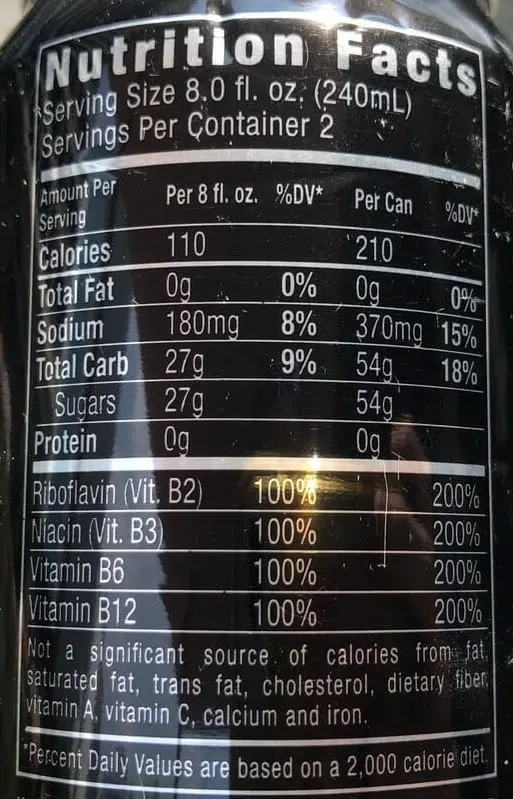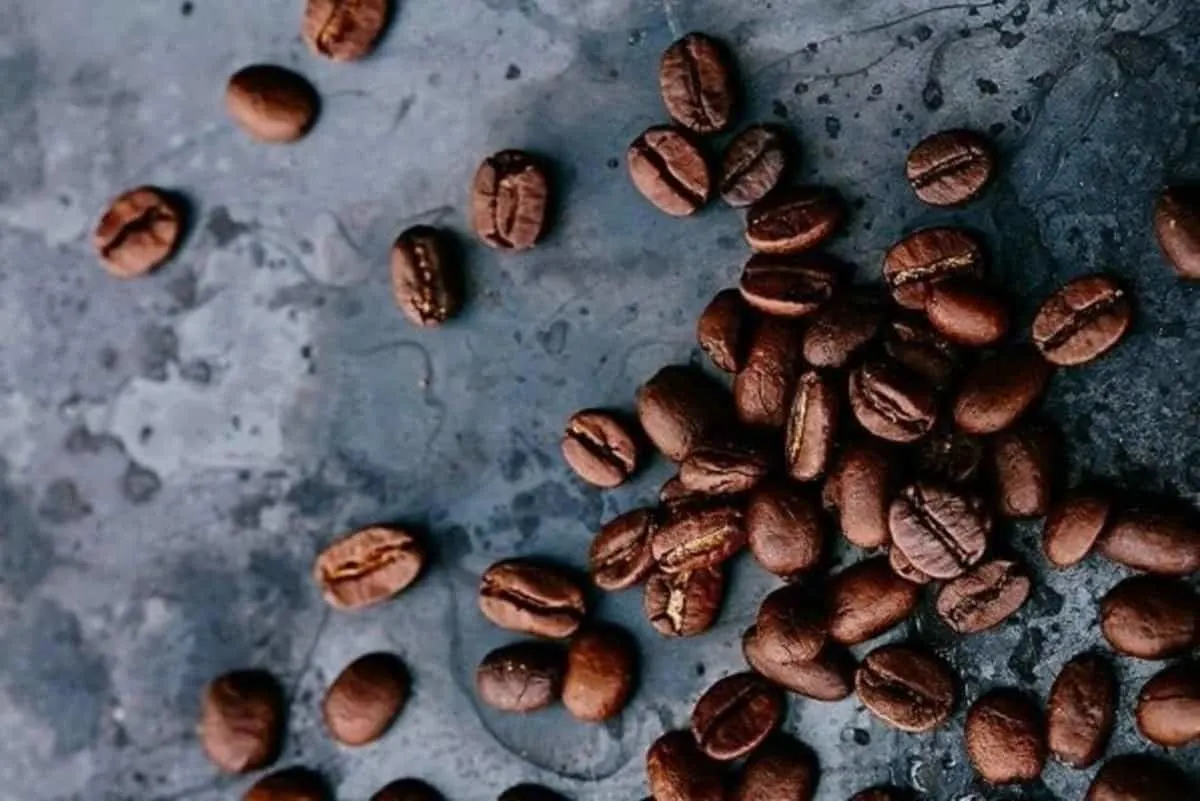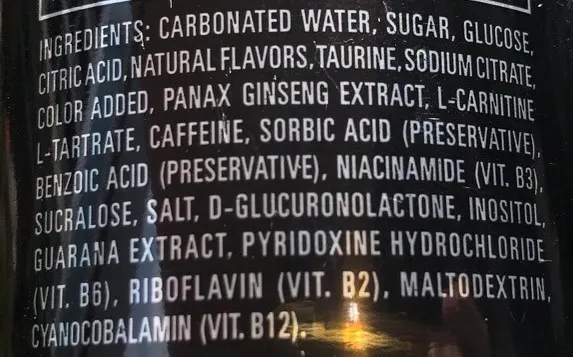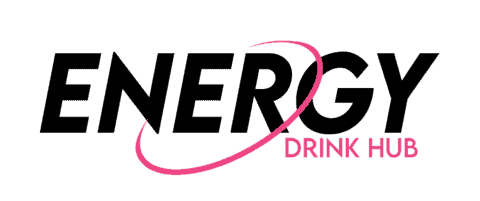Monster’s 16 fl. oz. can is roughly equivalent to two cups of coffee. While it has many supplements, it has high amounts of sugar, leaving coffee as the healthier choice.
If you want something different from your usual coffee, you might be interested to try Monster Energy Drink. The sharp, tangy, and cool taste of Monster might be a welcome change from the bitter-tasting beverage coffee.
Monster is one of the most popular energy drinks worldwide, holding about 39% shares in the energy drink market next to Red Bull.
Unlike other energy drinks with niche customer groups, Monster has a rich and diverse customer base. It targets athletes, musicians, hipsters, geeks, and party-goers, among many others.
Monster has also been marketed as your go-to energy drink regardless of the time of the day. But is it really the best substitute for coffee?
With this question in mind, I’ll put Monster Energy Drink to the test and see if it’s a safe and healthy alternative to coffee.
To do this, I will examine the calorie content of Monster and compare it to coffee. I will also talk about the risks that come with each beverage’s caffeine and sugar level.
Now let’s begin with the nutrition facts of Monster and coffee to determine the difference between the two.
Page Contents
Monster vs. Coffee: Nutrition Facts

Inspecting the nutrition facts is the first thing you should do if you’re comparing two different drinks.
However, this can get a little tricky because coffee doesn’t have a uniform nutrition value. It all depends on how it is brewed and the additives used.
However, for the purposes of comparison in this article, I researched the nutritional facts of one cup or 240 ml of black coffee.
You can refer to the nutrition facts table I made below for a side-by-side comparison of the nutrients of Monster and coffee.
Later on, we’ll discuss the differences in more detail.
| Nutrients | Monster Energy Drink (16 fl. oz.) | Black Coffee |
| Calories | 210 | 2 |
| Fat | 0 g | 0 |
| Sugar | 54 g | 2 g |
| Caffeine | 160 mg | 96 mg |
| Protein | 0 g | 0 |
| Sodium | 370 mg | 0 |
| Vitamin B2 | 200% of the DV | 11% of the DV |
| Vitamin B3 | 200% of the DV | 2% of the DV |
| Vitamin B6 | 200% of the DV | 2% of the DV |
| Vitamin B12 | 200% of the DV | 0 |
| Potassium | 0 | 3% of the DV |
A quick scan of the table tells us that Monster and coffee greatly differ in calories, sugar, and caffeine levels.
Aside from that, Monster Energy drink contains more B-Vitamins than coffee.
Let’s break down this comparison by starting with caffeine.
Caffeine in Coffee vs Monster

A standard can of Monster Energy contains 160 mg of caffeine, while an average cup of coffee has 96 mg of caffeine.
Caffeine-wise, I believe both beverages are safe to consume for people with lower caffeine tolerance.
To put it in perspective, the caffeine in 16 fl. oz. can of Monster is equal to two cups of coffee which can definitely give you a lift for at least a few hours. So, for that reason, Monster could be a better choice.
In other words, Monster Energy really has an edge in terms of energy boost because of its higher caffeine content compared with coffee.
Caffeine is commonly found in coffee, beans, and tea. It is a nervous system stimulant that has natural properties that fight fatigue, boost concentration, and enhances physical performance.
Furthermore, caffeine also provides the following health benefits:
- promotes weight loss
- improves athletic performance
- improves brain function
- helps protect against cataracts
- protects against skin cancer
- helps fight Type 2 Diabetes
Although these amazing health benefits may push you to drink as many caffeinated drinks as you want, you shouldn’t do it as too much caffeine will disrupt the normal functioning of your nervous system.
According to the FDA, the recommended range of daily caffeine intake is 400 mg for healthy adults. Exceeding this limit will be harmful to your health as this might lead to caffeine overdose.
That being said, I think the 160 mg of caffeine in Monster is just the ideal range to put you in an energized state and focused mental space.
Still, you should strictly limit yourself to one can of Monster Energy Drink a day to avoid caffeine intoxication.
Aside from feeling panicky, you might experience the adverse effects of caffeine overdose, such as:
- dizziness
- diarrhea
- increased thirst
- insomnia
- headache
- fever
- irritability
If you have low caffeine metabolism, there’s a higher risk for you to experience more severe symptoms, like:
- trouble breathing
- vomiting
- hallucinations
- confusion
- chest pain
- irregular or fast heartbeat
- uncontrollable muscle movements
- convulsions
Now that you know all about Monster and coffee’s caffeine content, let’s move on to calories.
Monster vs. Coffee: Calorie Content
The regular 16 fl. oz. serving of Monster contains 210 calories, while an unsweetened black coffee contains 1 or 2 calories.
For a brief background, calories are the amount of energy you get from the food and beverages that you consume. So, calories aren’t necessarily a bad thing.
For your reference, the recommended calorie intake is 2,000 calories a day for women and 2,500 calories a day for men.
As you can see, the 210 calories in Monster is equal to 1/10th of your daily calorie allotment, which will not significantly affect your diet.
However, if you’re counting calories, you might favor black coffee over Monster Energy Drink because it contains fewer calories.
Now, let’s talk about the sugar content of both beverages.
Monster vs. Coffee: Sugar Content
Monster Energy Drink contains 54 g of sugar, which can be alarming as this is twice the daily recommended sugar intake.
As a sweet reminder, the American Heart Association set the following limit for sugar intake:
- 36 grams or 9 teaspoons of sugar a day for men
- 24 grams or 6 teaspoons of sugar a day for women
Based on the above figure, it is quite obvious that the sugar content in Monster exceeds the daily recommended limit for both men and women.
Because of this, you should limit your consumption of Monster to one can per day or better yet only have it occasionally when you really need a quick boost.
To help you understand the risks related to excessive sugar consumption, here are some health complications associated with it:
- weight gain
- higher risk of heart disease
- increased risk of cancer
- heightened risk of Type 2 Diabetes
- accelerated skin aging
- accelerated cellular aging
- low energy levels
- possible kidney disease
- dental problems
- gout
- possible decline in brain function
To reduce the risks of suffering from these symptoms, I strongly suggest choosing sugar-free energy drinks such as Bang, Reign, and Celsius.
If you’re keen on sticking to Monster, you should try Monster Zero Ultra Sugar, which is the sugar-free version of this drink.
It costs almost the same as a regular Monster Energy Drink and still has the same great flavor.
Sugar-wise, I’ll choose coffee over Monster because I have more control over the amount of sugar that I can add to it. I like the idea of black coffee more because it is far healthier than Monster or any energy drink.
Also, with coffee, there’s a wide selection of alternative sweeteners which are considered relatively healthy such as:
- honey
- dates
- cinnamon
- stevia
- unsweetened cocoa powder
- vanilla
So, my verdict on which one is better between a cup of coffee and a can Monster, in terms of sugar, is coffee!
But don’t dismiss Monster too much. Consider it as a treat if you’re in need of a strong boost once in a while.
How Many Cups of Coffee is Equivalent to a Monster?
Because Monster is marketed as a coffee substitute, you might be wondering about its equivalent serving.
A regular can (16 fl. oz.) of Monster Energy Drink is equivalent to about two cups of black coffee, while its 8 fl. oz serving is equivalent to one cup of coffee.
Monster contains 160 mg of caffeine while one cup of black coffee has 96 mg of caffeine.
Take note, however, that if you consume the smaller can, it has a much lower caffeine level equivalent to just one cup of coffee.
Is Coffee or Monster Better for You?

The answer depends.
Based on the nutrition facts, Monster has more energy-boosting supplements and vitamins but has high levels of sugar. On the one hand, coffee provides a minimal energy boost but with lesser sugar-related complications.
From the ingredients list of Monster, you can see the additional supplements of the beverage which are:
- Taurine- an amino acid that is known to improve brain performance. Other benefits include boosting exercise performance and improving heart health.
- Panax Ginseng Extract- a stimulant commonly known as Chinese Ginseng that helps reduce inflammation and improves brain function.
- L-Carnitine– a type of amino acid that helps the body produce more energy. Also, it may help heal heart and kidney problems.
- Guarana Extract– a stimulant like caffeine that is rich in antioxidants and among its many benefits are weight loss, and improved energy levels, and focus.
- Glucuronolactone– a popular energy drink ingredient that enhances alertness and reduces brain fog.
- Inositol– a substance that helps manage blood sugar control, reduces anxiety, and increases fertility in women with PCOS.
What’s the difference between coffee and monster?
Coffee and Monster are both beverages. Coffee is a naturally occurring beverage that is made from roasted coffee beans and typically contains caffeine, antioxidants, and other beneficial compounds. Coffee is widely available and can be consumed in various forms, such as brewed coffee, espresso, cappuccino, and latte.
On the other hand, Monster energy drinks, are artificially flavored and sweetened beverages that contain caffeine, taurine, B-vitamins, and other ingredients. Energy drinks are marketed as a source of increased energy and focus, and they are often consumed in smaller quantities than coffee.
What are the side effects of Monster energy drinks and Coffee?
There are several side effects to both Monster Energy and Coffee. Both Monster energy drinks and coffee contain caffeine and other ingredients that can cause side effects if consumed in excess or by individuals who are sensitive to their ingredients.
Additionally, excessive caffeine consumption can lead to dehydration. For postmenopausal women, long-term and excessive coffee consumption can also increase the risk of bone loss. It’s important to consume both coffee and Monster energy drinks in moderation and be aware of personal tolerance levels and health conditions.
What’s Worse Coffee or Energy Drinks?
The answer depends on the angle you look at it from. No beverage is worse than the other, but they both have their advantages and disadvantages.
Like I’ve mentioned earlier, sugar levels is something you should watch out for.
Energy drinks usually have higher sugar levels which pose a greater health risk relative to coffee. However, I cannot generalize because some brands formulate zero-sugar versions to address excessive sugar content.
Manufacturers such as Bang and Monster Zero Ultra use zero-calorie sweeteners like sucralose and acesulfame potassium, instead of high fructose corn syrup, an ingredient associated with obesity.
Although energy drinks usually have a fixed amount of sugar that may or may not be dangerous to your health, you control the amount of sugar in your cup of coffee. Keeping the sugar content minimal is healthier for you in the long run.
Watch the video below to hear what the doctors have to say about this.
So, what do you think? My main takeaway here is you’ll be fine as long as you drink any beverage in moderation!
Is Monster Energy better than coffee?
The comparison between Monster Energy and coffee depends on individual preferences, health considerations, and the intended purpose. Monster Energy is an energy drink that contains caffeine, taurine, and other stimulating ingredients, providing a quick energy boost and increased alertness.
Whether one is better than the other is subjective and varies based on personal preferences, tolerance to caffeine, and health needs. Coffee provides a more natural source of caffeine and can be consumed without added sugars or artificial additives, making it a preferable option for some.
Does Monster and coffee have the same amount of caffeine?
Monster Energy and coffee do not have the same amount of caffeine. The caffeine content in Monster Energy can vary 140 to 160mg per 16-ounce can. In contrast, the caffeine content in coffee varies widely but a typical 8-ounce cup of brewed coffee contains around 95mg of caffeine.
It’s essential to be mindful of the caffeine content in both Monster Energy and coffee to avoid excessive consumption, which can lead to negative side effects like nervousness, increased heart rate, and difficulty sleeping. Additionally, individual tolerance to caffeine varies, so some people may be more sensitive to its effects than others.
The Verdict
So, to answer the question, which is a better drink between coffee and Monster?
It really depends on your preference and whichever you choose between these two drinks, always remember to consume them moderately to prevent health complications.
Monster Energy Drink and coffee greatly differ in major aspects like caffeine, calories, and sugar level.
I recommend Monster Energy Drink if you want a greater and longer boost.
But you should look for Monster Zero Ultra, the sugar-free version of Monster, to avoid health complications from excess sugar.
I’d say a strong cup of black coffee is suitable for you if you need something to wake you up in the morning. Also, coffee is definitely a better choice for you if you’re sugar conscious as you can control how much sugar to add to your cuppa.
That’s it for now. Take your pick – is it coffee or Monster?
